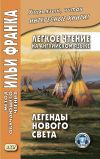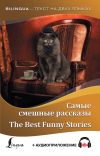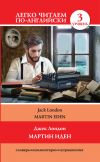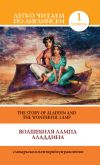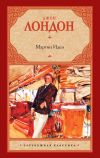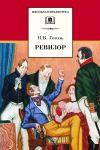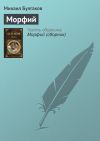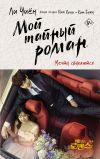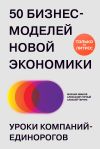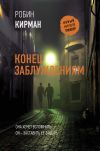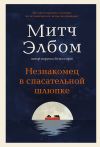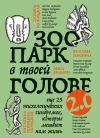Текст книги "Мартин Иден / Martin Eden (+ аудиоприложение LECTA)"
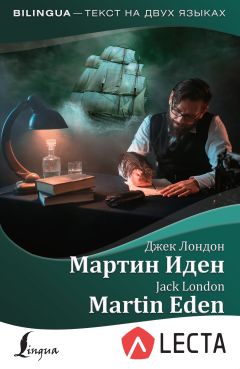
Автор книги: Джек Лондон
Жанр: Иностранные языки, Наука и Образование
Возрастные ограничения: +12
сообщить о неприемлемом содержимом
Текущая страница: 4 (всего у книги 15 страниц) [доступный отрывок для чтения: 5 страниц]
Chapter 20
Mrs. Morse read the advertisement in Ruth’s face when she returned home.
“What has happened?” Mrs. Morse asked.
“You know?” Ruth queried, with trembling lips.
“In the name of goodness, child, what happened?” Mrs. Morse was bewildered.
Ruth looked at her mother in surprise.
“I thought you knew. Why, we’re engaged, Martin and I.”
Mrs. Morse laughed.
“No, he didn’t speak,” Ruth explained. “He just loved me, that was all. I was as surprised as you are. He didn’t say a word. He just put his arm around me. And – and I was not myself. And he kissed me, and I kissed him. And then I knew I loved him.”
She paused, but Mrs. Morse was coldly silent.
“It is a dreadful accident, I know. And I don’t know how you will ever forgive me. I did not dream that I loved him until that moment. And you must tell father.”
“Let me see Martin Eden, and talk with him, and explain. He will understand and release you.”
“No! no!” Ruth cried. “I do not want to be released. I love him, and love is very sweet. I am going to marry him – of course, if you will let me.”
“We have other plans for you, Ruth, dear, your father and I – oh, no, no. You must marry a good and honorable gentleman, whom you will select yourself, when you love him.”
“But I love Martin already,” was the protest.
“We would not influence your choice in any way; but you are our daughter. He has nothing but roughness and coarseness to offer you. He could not support you. We have no foolish ideas about wealth, but our daughter should not marry a penniless adventurer, a sailor, a cowboy, a smuggler, and who is irresponsible.”
Ruth was silent. Every word she recognized as true.
“He wastes his time over his writing. As I have said, and I know you agree with me, he is irresponsible. He is a sailor. It is not his fault, of course, but that does not alter his nature.”
“I have thought. And it is terrible. I told you it was a dreadful accident, but I can’t help myself. There is something in me, in him. I never thought to love him, but, you see, I do,” she concluded.
They talked long, and in conclusion they agreed to wait.
Martin told Ruth about his plans. “I put stamps on all my manuscripts. Tomorrow I start to work.”
“To work!” Ruth cried, pressing his hand, and smiling. “And you never told me! What is your work?”
“I am going to write again.” Her face fell, and he went on hastily. “Don’t misjudge me. I shall earn money. I shall leave masterpieces alone and I shall write jokes, humorous verse, and society verse. Income first, masterpieces afterward. Just to show you, I wrote half a dozen jokes last night for the comic magazines. That will give me time to try bigger things.”
“But what good are these bigger-things, these masterpieces?” Ruth demanded. “You can’t sell them.”
“Oh, yes, I can,” he began; but she interrupted.
“You have not sold any of them. We can’t get married on masterpieces that won’t sell.”
“Then we’ll get married on triolets that will sell. Listen to this, it’s not art, but it’s a dollar. Just listen:
He came in
When I was out,
To borrow some tin
Was why he came in,
And he went without;
So I was in
And he was out.”
Ruth was looking at him angrily.
“It may be a dollar,” she said, “but it is a jester’s dollar, the fee of a clown, Martin.”
“Give me time, dear,” he pleaded. “Give me two years. I shall succeed in that time, and the editors will be glad to buy my good work. I know what I am saying; I have faith in myself. I know what I have in me; I know what literature is, now. A ‘best-seller’ will earn anywhere between fifty and a hundred thousand dollars – sometimes more and sometimes less.”
Ruth remained silent; her disappointment was apparent.
“Well?” he asked.
“I had hoped and planned otherwise. I had thought, and I still think, that the best thing for you is to go into father’s office. You have a good mind, and I am confident you would succeed as a lawyer.”
Chapter 21
Martin had discovered that he loved beauty more than fame, and that what desire he had for fame was largely for Ruth’s sake. It was for this reason that his desire for fame was strong. He wanted to be great in the world’s eyes.
As for himself, he loved beauty passionately. And more than beauty he loved Ruth. He considered love the finest thing in the world.
Martin moved and paid two dollars and a half a month rent for the small room he got from his Portuguese landlady, Maria Silva, a hard working widow. There were but four rooms in the little house. Maria had seven little children. It was a miracle to Martin how she succeed to live. Another source of income to Maria were two her cows, which she milked night and morning.
In his own small room Martin lived, slept, studied, and wrote. Martin had a perfect stomach that could digest anything. Pea-soup was a common article in his diet, as well as potatoes and beans. Rice appeared on Martin’s table at least once a day. Dried fruits were less expensive than fresh, and he had usually a pot of them. Coffee, without cream or milk, he had twice a day. There was need for him to be economical.
The weeks passed. All his manuscripts had come back. The Portuguese grocer, to whom he had paid cash, told him one day that Martin’s bill reached three dollars and eighty-five cents.
“I can’t give you food,” said the grocer, “you have no work, how will you pay?”
Martin could reply nothing. He could not explain him why a young fellow was too lazy to work.
“No job, no food,” the grocer told Martin. “That’s it.”
The owner of the fruit store, where Martin had bought his vegetables, showed Martin a bill of five dollars and stopped his credit. The baker stopped at two dollars, and the butcher at four dollars.
Day by day Martin worked on, and day by day the postman delivered to him rejected manuscripts. He had no money for stamps, so the manuscripts accumulated in a heap under the table.
Martin was disappointed with his jokes. Nobody wanted to buy them. He compared them with what he found in the newspapers, and cheap magazines, and decided that his jokes were better; yet they would not sell.
The hours he spent with Ruth were the only happy ones he had.
Chapter 22
Maria Silva was poor, and she knew very well what poverty was. She watched Martin’s toils, and she was very sorry for him. She was surprised to notice that the less food he had, the harder he worked. Sometimes she gave him food, and Martin was very grateful.
“Maria,” he exclaimed suddenly one day. “What would you like to have?”
She looked at him.
“What would you like to have now, right now, if you could get it?”
“Seven pairs of shoes for my kids,” she answered.
“You will have them,” he announced, while she nodded her head gravely. “But I mean a big wish, something big that you want.”
“All right,” she answered. “I’d like to have a house – all mine, I own it, no rent.”
“You will have it,” he granted, “and in a short time. Now wish the great wish. Make believe I am God, and I say to you anything you want you can have. Then you wish that thing, and I listen.”
Maria considered.
“You are not afraid?” she asked.
“No, no,” he laughed, “I’m not afraid. Go ahead.”
“Well, then – ” she drew a big breath like a child. “I want to have a milk ranch – a good milk ranch. Many cows, much land, much grass. I will sell milk in Oakland. Yes, I want to have a milk ranch.”
She paused and regarded Martin with twinkling eyes.
“You will have it,” he answered promptly.
She nodded her head. In her own heart she appreciated his intention.
“Maria,” Martin went on; “Your kids will go to school and wear shoes the whole year round. It will be a first-class milk ranch. There will be a house to live in and a stable for the horses, and cow-barns, of course. There will be chickens, pigs, vegetables, fruit trees; and there will be many cows. And if you find a good man, you can marry him.”
Martin took his one good suit of clothes to the pawnshop. He toiled on, miserable and hopeless. It began to appear to him that the second battle was lost and that he would have to go to work. He would satisfy everybody – the grocer, his sister, Ruth, and even Maria, to whom he owed a month’s room rent.
Suddenly the postman brought him one morning a short, thin envelope. Martin glanced at the upper left-hand corner and read the name and address of the TRANSCONTINENTAL MONTHLY. Of course this was good news. There was no manuscript in that thin envelope, therefore it was an acceptance. He knew the story in the hands of the TRANSCONTINENTAL. It was “The Ring of Bells,” one of his horror stories, and it was five thousand words. And there was a check inside. Two cents a word – twenty dollars a thousand; the check must be a hundred dollars. One hundred dollars! when he was opening the envelope, he was counting – $3.85 to the grocer; butcher $4.00; baker, $2.00; fruit store, $5.00; total, $14.85. Then there was room rent, $2.50; another month in advance, $2.50; two months’ type-writer, $8.00; a month in advance, $4.00; total, $31.85. And finally, the pawnbroker – watch, $5.50; overcoat, $5.50; wheel, $7.75; suit of clothes, $5.50 (60 % interest, but what did it matter?) – grand total, $56.10.
By this time he had opened the envelope. There was no check. He held it to the light, but could not trust his eyes. There was no check. He read the letter. The letter slid from his hand.
Five dollars for “The Ring of Bells” – five dollars for five thousand words! Instead of two cents a word, ten words for a cent!
TRANSCONTINENTAL paid five dollars for five thousand words! Martin would let Ruth know that he was willing to go into her father’s office.
Five dollars for five thousand words, ten words for a cent, the market price for art. Martin’s head ached, the top of it ached, the back of it ached, the brains inside of it ached, the ache over his brows was intolerable.
Chapter 23
Martin Eden did not go out to hunt for a job in the morning. It was late afternoon when he gazed with aching eyes about the room. Maria hurried into the room from the kitchen. She put her hand upon his hot forehead and felt his pulse.
“Do you want to eat?” she asked.
He shook his head.
“I’m sick, Maria,” he said weakly. “What is it? Do you know?”
“Influenza,” she answered. “Two or three days and you are all right. Better not to eat now. Maybe tomorrow you can eat.”
Martin tried to get up and dress. He managed to get out of bed. Maria came in several times to change the cold cloths on his forehead. He murmured to himself, “Maria, you will get your milk ranch, all right, all right.”
“What’s the reason to write a whole library and lose his own life?” he demanded aloud. “This is no place for me. No more literature for me. I want the monthly salary, and the little home with Ruth.”
Two days later he asked for his mail, but his eyes hurt too much to permit him to read.
“You read for me, Maria,” he said. “Throw the big, long letters under the table. Read me the small letters.”
“I can’t,” was the answer. “Teresa, she goes to school, she can.”
So Teresa Silva opened his letters and read them to him. He listened absently. Suddenly he was shocked back to himself.
“‘We offer you forty dollars for all serial rights in your story.’”
“What magazine is that?” Martin shouted. “Here, give it to me!”
It was the WHITE MOUSE that was offering him forty dollars, and the story was “The Whirlpool,” another of his early horror stories. He read the letter through again and again.
Martin lay back and thought. It wasn’t a lie, after all. There were two thousand words in “The Whirlpool.” At forty dollars that would be two cents a word. Two cents a word – the newspapers had told the truth.
Well, there was one thing certain: when he got well, he would not go out looking for a job. There were more stories in his head as good as “The Whirlpool,” and at forty dollars apiece he could earn far more than in any job. Just when he thought the battle lost, it was won. The way was clear.
He found one letter from Ruth. He re-read the letter adoringly, loving each stroke of her pen, and in the end kissing her signature.
And when he answered, he told her that his best clothes were in pawn. He told her that he had been sick.
Ruth arrived immediately. Her lover was sick. The next afternoon, accompanied by Arthur, she arrived in the Morse carriage, to Silva’s house.
For the first time Ruth gazed upon the poverty. She had never dreamed it could be like this. When she looked at Martin, she was afraid. She had never seen him unshaven. Moreover: how he would continue on in this horrible house, writing and starving for a few more months.
“What is that smell?” she asked suddenly.
“Some of Maria’s washing smells, I imagine,” was the answer.
“No, no; not that. It is something else. A stale, sickish smell.”
“I can’t smell anything else, except stale tobacco smoke,” Martin announced.
“That’s it. It is terrible. Why do you smoke so much, Martin?”
“I don’t know. I began when I was only a boy.”
“It is not a nice habit, you know,” she reproved.
“That’s the fault of the tobacco. I can afford only the cheapest. But wait until I get that forty-dollar check. That forty-five dollars will pay about all my debts.”
“For two years’ work?” she asked.
“No, for less than a week’s work. Four days for ‘The Ring of Bells,’ two days for ‘The Whirlpool.’ That’s forty-five dollars for a week’s work, one hundred and eighty dollars a month. And I’m just beginning. A thousand dollars a month is not too much to buy for you all I want you to have. A salary of five hundred a month would be too small. That forty-five dollars is just a starter.”
Ruth reverted to cigarettes.
“You are a chimney, a living volcano, Martin dear, you know you are. I wish you wouldn’t smoke any more,” she whispered. “Please, for – my sake.”
“All right, I won’t,” he cried. “I’ll do anything you ask, dear love, anything; you know that.”
“You know, it is really not for my sake, Martin, but for your own. Why, you haven’t anything to eat, you poor dear,” she said with tender compassion. “You must be hungry.”
“I store my food in Maria’s safe,” he lied. “It keeps better there.”
“I’m such a silly,” said Ruth. “But I love you, Martin, I do, I do. There’s some kind of a mixture, put up by the druggists, that helps men to stop the use of tobacco, and I am going to send you some.”
The door closed, but opened again.
“I do, I do,” she whispered to him again.
Chapter 24
The sun of Martin’s good fortune rose. The day after Ruth’s visit, he received a check for three dollars from a New York scandal weekly. Two days later a newspaper published in Chicago accepted his “Treasure Hunters,” promising to pay ten dollars for it on publication. The price was small, but it was the first article he had written, his very first attempt to express his thought on the printed page.
Martin was not yet rich enough to afford meat, and the WHITE MOUSE check arrived. Forty dollars! Martin paid the grocer’s bill, and he paid the other tradesmen in full, redeemed his suit and his bicycle, paid one month’s rent on the type-writer, and paid Maria the overdue month for his room and a month in advance. This left him in his pocket a balance of nearly three dollars.
This small sum seemed a fortune. Immediately he had gone to see Ruth. He found many persons in the Morse home. Ruth’s two girl-cousins were visiting her from San Rafael, and Mrs. Morse was pursuing her plan to surround Ruth with young people. “Don’t get excited when you talk,” Ruth admonished Martin.
“What did you think of my cousins?” Ruth asked him afterwards.
“I liked them better than the other women. There’s plenty of fun in them.”
“Then you did like the other women?”
He shook his head.
From the evening at Ruth’s Martin brought away with him strange confusions and conflicting feelings. He was disappointed in the persons he had climbed to be with. On the other hand, he was encouraged with his success. The climb had been easier than he expected. He was superior to the climb, and (he did not, with false modesty, hide it from himself) he was superior to the people among whom he had climbed. About life and the books he knew more than they.
Chapter 25
But success had lost Martin’s address, and her messengers no longer came to his door. For twenty-five days, working Sundays and holidays, he toiled on “The Shame of the Sun,” a long essay of thirty thousand words. It was a deliberate attack on the mysticism of the Maeterlinck school.
During the twenty-five days spent on “The Shame of the Sun,” he earned six dollars and fifty cents. A joke had brought in fifty cents, and a second one, a dollar. Then two humorous poems had earned two dollars and three dollars respectively. As a result, his wheel and suit of clothes went back to the pawnbroker.
How to write a story that he can sell? Martin decided to invent a formula. The formula consists of three parts: (1) a pair of lovers are jarred apart; (2) by some deed or event they are reunited; (3) marriage bells. The pair of lovers could be jarred apart by misunderstood motives, by accident of fate, by jealous rivals, by irate parents, by crafty guardians, by scheming relatives, and so forth and so forth; they could be reunited by a brave deed of the man lover, by a similar deed of the woman lover, by change of heart in one lover or the other, by forced confession of crafty guardian, scheming relative, or jealous rival, by voluntary confession of same, by discovery of some secret, by lover storming girl’s heart, by lover making long and noble self-sacrifice, and so on, endlessly. The formula prescribed twelve hundred words minimum dose, fifteen hundred words maximum dose.
He believed in the efficacy of his formula, and it worked. But the ten dollars for which Martin had sold “Treasure Hunters” to the Chicago newspaper did not come to hand. The article had been published, but the editor wrote him nothing. His letters were ignored. It was nothing less than robbery, he concluded.
“The Pot,” which he looked upon as one of the best things he had written, was lost to him. Martin had sent it to THE BILLOW, a society weekly in San Francisco. Two weeks later he was very glad to see, in the latest number, his story printed in full, illustrated, and in the place of honor. He went home with leaping pulse, wondering how much they would pay him for one of the best things he had done. After waiting a week, two weeks, and half a week longer, desperation conquered diffidence, and he wrote to the editor of THE BILLOW.
The letter from the editor elicited Martin’s admiration.
“We thank you,” it said, “for your excellent contribution. All of us in the office enjoyed it immensely, and, as you see, it was given the place of honor and immediate publication. We earnestly hope that you liked the illustrations.
But we do not pay for unsolicited manuscripts. We assumed, naturally, when we received your story, that you understood the situation. We can only deeply regret this unfortunate misunderstanding.”
Though Martin hated his machine-made stories, they were successful.
Chapter 26
It was a hard summer for Martin. Manuscript readers and editors were away on vacation.
Despite various misadventures, the memory of the WHITE MOUSE forty-dollar check sustained him. Martin began to write for the agricultural weeklies and trade journals, though among the religious weeklies he found he could easily starve. At his lowest ebb his black suit was in pawn.
In some days he kept his black suit in pawn in place of his bicycle. The latter gave him exercise, saved him hours of time for work, and enabled him to see Ruth. A pair of knee duck trousers and an old sweater made him a presentable wheel costume, so that he could go with Ruth on afternoon rides. Besides, he no longer had opportunity to see much of her in her own home, where Mrs. Morse was thoroughly prosecuting her campaign of entertainment. The exalted persons he met there now bored him. They were no longer exalted. He was not egotistic. He measured the narrowness of their minds by the minds of the thinkers in the books he read. At Ruth’s home he never met a large mind. They were superficial, dogmatic, and ignorant. Their ignorance astounded him. What was the matter with them? What had they done with their educations? They had had access to the same books he had. How did it happen that they had drawn nothing from them?
He knew that the great minds, the deep and rational thinkers, existed. He had known that from the books, the books that had educated him beyond the Morse standard.
Well, he would fight his way on and up higher. And he would take Ruth with him. He dearly loved her, and he was confident that she would shine anywhere. She had not had a chance to expand. To real literature, real painting, real music, the Morses were dead.
“You hate and fear the socialists,” he remarked to Mr. Morse, one evening at dinner; “but why? You know neither them nor their doctrines.”
“Your doctrine certainly sounds like socialism,” Mr. Morse replied, while Ruth gazed anxiously from one to the other.
“Because I say Republicans are stupid, and hold that liberty, equality, and fraternity are exploded bubbles, does not make me a socialist,” Martin said with a smile. “Believe me, Mr. Morse, you are far nearer socialism than I who am its avowed enemy.”
“You are joking,” was the reply.
“Not at all. I speak in all seriousness. You still believe in equality, and yet you do the work of the corporations, and the corporations, from day to day, are busily engaged in burying equality. And you call me a socialist because I deny equality.”
“But you come to socialist meetings,” Mr. Morse said.
“Certainly, just as spies visit hostile camps. How else are you to learn about the enemy? Besides, they are good fighters, and, right or wrong, they have read the books.”
Правообладателям!
Данное произведение размещено по согласованию с ООО "ЛитРес" (20% исходного текста). Если размещение книги нарушает чьи-либо права, то сообщите об этом.Читателям!
Оплатили, но не знаете что делать дальше?


